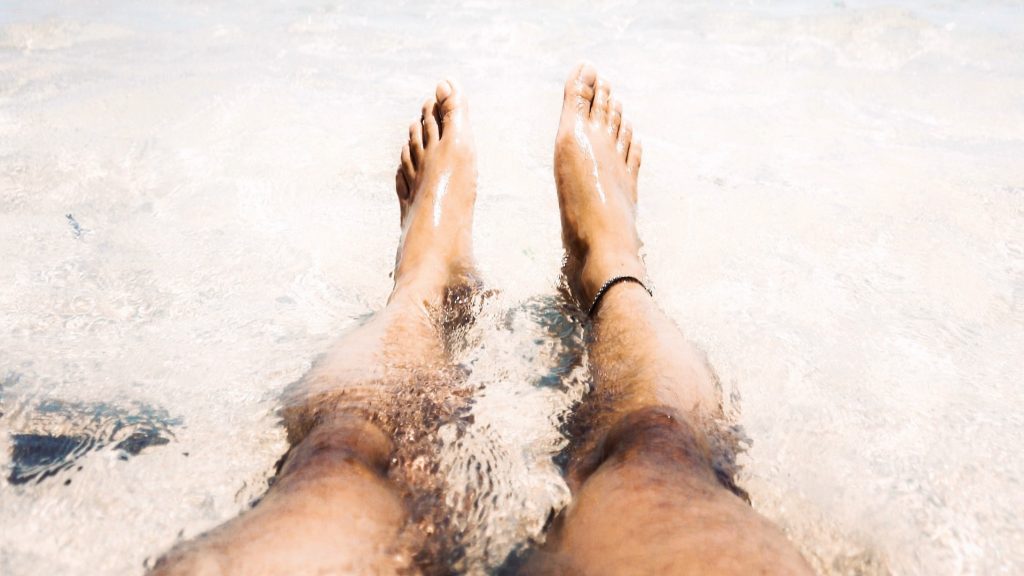If your legs are constantly swollen and uncomfortable, and the swelling seems impossible to control, you may have edema. It can be a struggle to deal with this condition daily, but don’t be discouraged. Diagnosis and treatment could help make life much easier for you.
To begin healing, it’s essential to understand the possible causes and available treatments. Read on for an overview of the disease, its symptoms and its remedies.
What is Edema?
Edema is a swelling due to fluid build-up in the body’s tissues. It can affect one or multiple parts of the body, depending on its cause. It very often manifests in the legs. So if it doesn’t go away for a few days, you must see a doctor immediately.
You may be wondering, “is edema in the legs life threatening?” In short: yes, if left untreated for too long. This condition can cause severe complications, including kidney and heart damage. So if you have swelling in the legs that doesn’t go away for a few days, see a doctor immediately.
Common Symptoms of Edema
Other signs and symptoms of edema:
- Skin discoloration
- Pitting edema: indentations remain when pressure is applied to the swollen area
- A full, heavy feeling in the legs
- Clothing feels tight
- Skin feels tight and warm
- Joints stiffening
- Tautness or pain in the surrounding area
The Various Causes of Edema
Apart from swelling and puffiness, knowing what causes edema in legs is crucial.
Edema has various causes and can vary in severity. For instance, mild edema is common in pregnant women and is not a cause for concern. However, it can also be due to an underlying health condition.
Conditions or treatments that may cause edema in the legs:
- Kidney disease: Edema due to kidney disease causes swelling around the eyes and lower legs.
- Heart failure: Heart failure can cause swelling in the legs and abdomen and other symptoms. It may also cause life-threatening pulmonary edema, which requires emergency treatment.
- Menstruation: Edema in women that occurs in a cyclic pattern can be due to hormonal changes related to menstruation.
- Drugs: Edema can be a side effect of taking certain medications, such as oral diabetes medications, high blood medications, etc.
- Travel: Sitting for prolonged periods can cause swelling in the lower legs, which is also due to poor circulation.
- Lymphedema: Removing lymph nodes surgically due to treating cancer can cause swelling in the limbs. It may also be an inherited condition that becomes apparent in childhood or early adulthood.
- Pregnancy: Pregnant women retain extra fluid, which causes swelling in the legs, hands, and face. It becomes apparent during the late stages of pregnancy.
How is Edema Treated?
There are multiple ways to treat edema in the legs. Since it can go away on its own, you can reduce the swelling at home.
Some things you can try to treat your edema:
- Raise your legs on a chair or pillows when you can: Try to raise your legs above the level of the heart several times a day. You may also prop them up while you sleep.
- Gentle exercises, such as walking, can improve blood flow: It can help move the fluid back toward the heart.
- Wear comfortable and wide shoes with soft soles and low heels: High heels can put extra pressure on the feet and ankles.
- Wash and dry your feet, then moisturize to avoid infections: Wear socks or shoes to prevent scrapes, cuts, and infections.
- Using compression therapy sets: Compression wraps and kits are one of the most popular forms of treatment for edema at home. They can help reduce swelling and support the legs to better enable mobility.
- Wearing compression hosiery: Wearing snug-fitting compression socks and stockings (for men and women) on a daily basis can help prevent swelling and improve circulation.
- Massaging the affected area: Massaging your feet toward the heart may also move fluid out of the area as long as it’s firm but not painful.
- Avoid eating food with too much salt: Avoid adding salt to your meals, as it can increase fluid build-up and worsen edema
- Diuretics: It’s a type of medication that causes the kidneys to excrete water and sodium, reducing edema. You must use it carefully since removing too much fluid quickly can cause lightheadedness or fainting and kidney impairment.
Often, it’s essential to visit a doctor to get the correct treatment, especially if home remedies are not improving the situation. The doctor should be able to determine the true cause and recommend a treatment regimen.
What to Do Before Your Appointment
If the swelling doesn’t subside and you want to see a healthcare provider, there are some things you can do to make your appointment go smoothly.
Before visiting your doctor, you may want to do the following:
- Write down your symptoms: Even though they might seem like nothing to do with your appointment, take note of your symptoms and when they began.
- Be aware of what you need to do: Ask if there’s anything you need to do before the appointment, such as fasting for specific tests.
- List your medical information: If you have a medical condition or are taking vitamins and medicines, list them and the doses.
- Know what to ask: If you have questions or concerns, take down notes and bring them with you on the appointment date.
- Take photos: Don’t forget to take pictures of the swelling if it worsens overnight.
Successfully Treat Edema in Legs by Learning its Causes
If you want to know how to treat edema in the legs, you’ll want to understand its causes first to choose the best remedy for your symptoms. With so many reasons for edema, you want to be sure of your treatment.
If you have any questions about compression treatments for edema, Medical Monks staff is always available during business hours and beyond. Get help via LiveChat, email ([email protected]) or by calling 844-859-9400, 8am-7pm Monday thru Friday.


